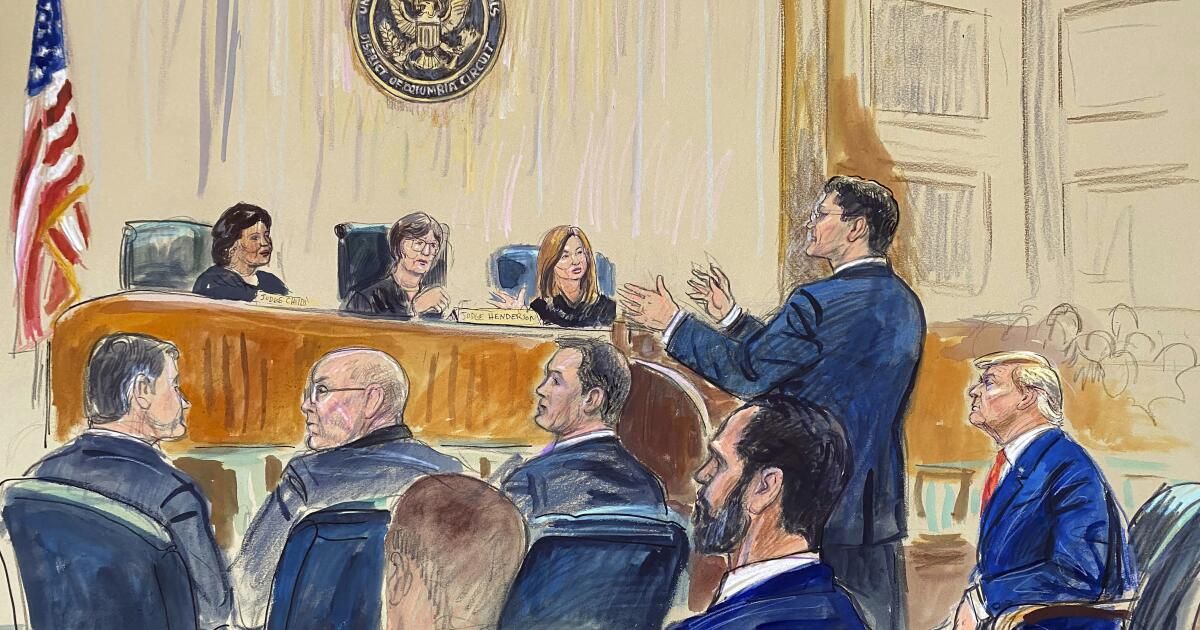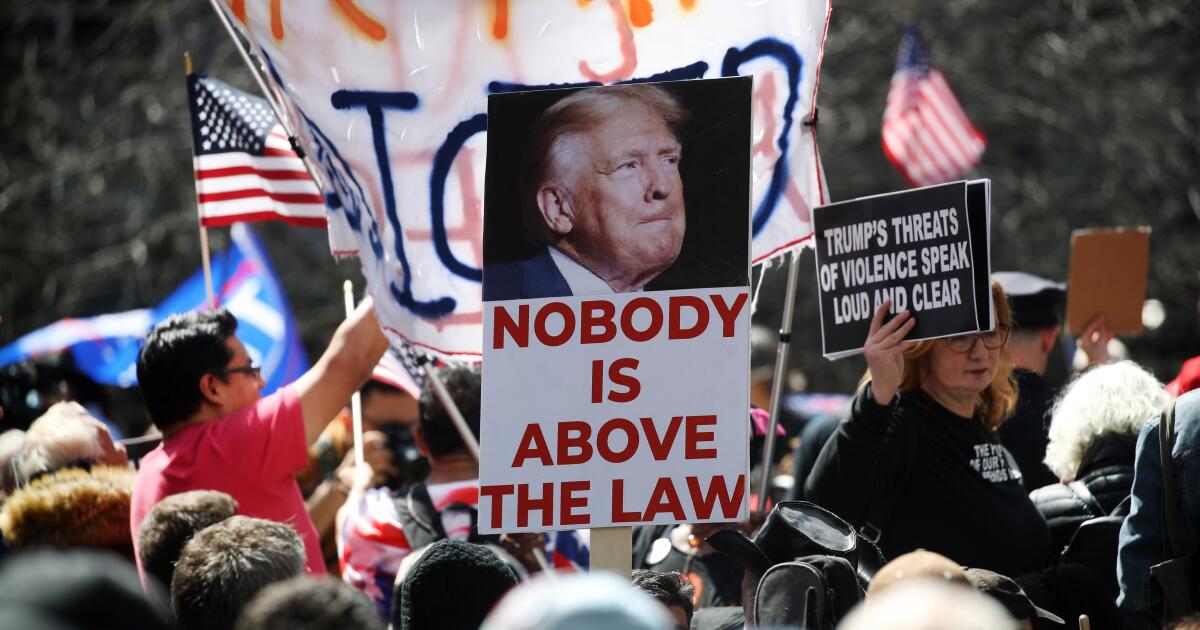During arguments Tuesday, a panel of the U.S. Court of Appeals for the D.C. Circuit expressed appropriate skepticism about Donald Trump’s claim of immunity from charges that he tried to overturn the 2020 election. What happened next may have been even worse for Trump than the hearing itself: The former president refused to rule out violence if the appeals court decision goes against him, as he seems to think it will.
“It’s going to be chaos in the country,” Trump told reporters. “It’s the opening of a Pandora’s box.”
To many, that sounded like encouraging anarchy.
Because this dangerous behavior has become almost common among Trump, some of us have come to ignore it. But it is certain that the courts will not do so.
It is difficult to imagine anything more damaging to one’s prospects in a case than attempting to intimidate the judges considering it.
In this case, it is even worse. In real time, Trump was reenacting what special counsel Jack Smith’s indictment accused him of doing on January 6, 2021: fomenting violence against the rule of law. And he was taking aim at the judges who had been entrusted with his case just down the street from his courthouse.
Perhaps it was an instinctive retaliatory response from a man who can’t stand the thought of being a loser, whether in court or in an election. Trump seems unable to tolerate the concept of being limited by law.
Or it may be the deliberate strategy we’ve seen throughout this presidential campaign: mobilizing his base to return him to office and give him a get-out-of-jail-free card.
But polls show that if Trump is convicted of a crime before the election, his prospects of returning to the White House will fall to Earth like the meteor that is said to have wiped out the dinosaurs. And if he is tried, it is virtually certain that he will be convicted. The evidence that Smith’s team has collected against him is more than overwhelming.
Therefore, what he wants to avoid in the coming months is a trial. To do so, he needs the Circuit Court, and more importantly, the Supreme Court, to buy his untenable claim of immunity or his even weaker argument that charging and criminally trying him for the same crimes would violate the Constitution.
His goal of getting the Supreme Court to consider his claim and delay the trial probably won’t be helped by statements like the one he just made outside the courthouse. Judges take a dim view of defendants who threaten the rule of law, and a thinly disguised call for violence is sure to offend any jurist who takes his constitutional role seriously.
Trump likely hurt himself in another way beyond the courtroom: by reinforcing one of President Biden’s central arguments against him. Just a few days earlier, in Valley Forge, Pennsylvania, Biden drew a definitive contrast with his rival in his first campaign speech of the year.
“Trump will not do what an American president should do,” Biden said. “He refuses to denounce political violence. …I will say what Donald Trump won’t say: political violence is never acceptable in America: never, never, never. It has no place in democracy. None.”
We can expect Trump to repeat his calls for violence in the coming months. And if anything can deter independent and undecided voters from voting for the former president, it may be encouraging lawbreaking and threatening public safety. Trump’s mouth could become the most powerful weapon of the Biden campaign.
Dennis Aftergut is a former federal prosecutor who advises Lawyers Defending American Democracy..












